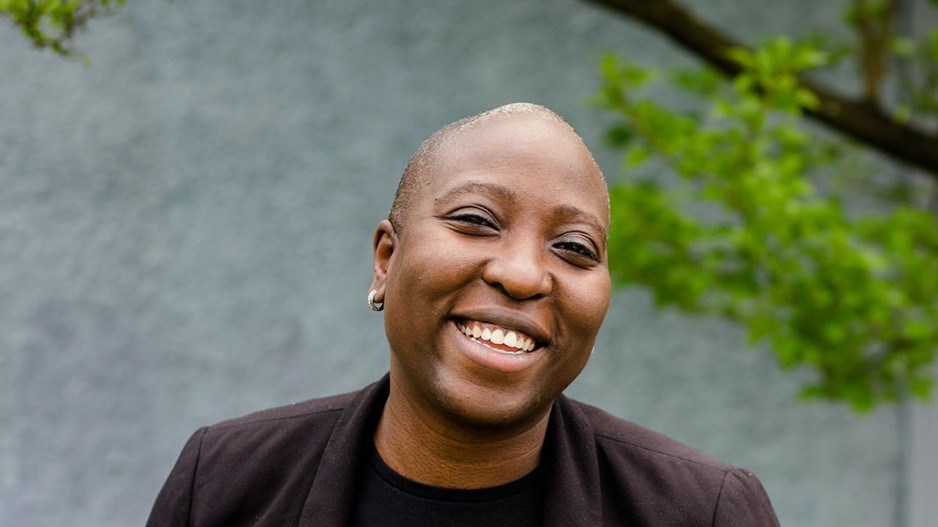The emergence of the metaverse has B.C. tech companies turning to the possibilities behind immersive digital worlds and communities.
But for Ethos Lab founder Anthonia Ogundele, the big thrills are coming in anticipation of the launch of the first physical, permanent home for her Vancouver learning academy.
“We launched physically just before the pandemic with a couple of workshops, but then the pandemic hit and really transitioned us and accelerated us into a virtual offering for young people,” said Ogundele, whose venture aims to create more opportunities for 12-18-year-olds – specifically within underrepresented groups such as girls and Black youths – within STEAM education (science, technology, engineering, arts, and math).
Virtual sessions during the pandemic offered opportunities for young people to learn about everything from urban ecology to 3D modelling.
Ethos Lab is getting its first permanent space at 177 Third Ave. E., inside a building owned by the City of Vancouver, where animation houses, visual effects studios and tech startups dot the Mount Pleasant neighbour in all directions. The site includes both a 1,000-sq.-ft. space as well as a 2,700-sq.-ft. production facility that, combined, can host about 70 people for in-person learning opportunities.
A June 18 block party will mark its launch.
“Ethos Lab isn't just about delivering after-school workshops to young people. It's about building a community and really bringing community to the culture of innovation within STEAM,” Ogundele said.
This effort to bring more awareness about science and technology to underrepresented groups comes amid a hiring spree within the province’s tech sector.
An October 2021 report from CBRE Group Inc. found Vancouver to be North America’s third fastest-growing tech hub, drawing 12,900 workers (+20.9 per cent) over the past two years.
But visible minority representation in B.C.’s tech sector in fact dropped between 2020 and 2021.
A fall report from the HR Tech Group found the percentage of tech workers who identify as visible minorities fell from 43.3 per cent to 41 per cent during that one-year period.
And an even larger gap prevails within West Coast C-suites: 19 per cent of executives identified as visible minorities in 2021 compared with 24 per cent a year earlier.
The data does not indicate the sheer number of visible minorities is waning in B.C.’s tech sector so much as they now make up a smaller percentage inside the labour force following so much significant hiring.
Ogundele said this trend is problematic for the sector, especially if it’s not drawing underrepresented groups into STEAM at a younger age.
One example she pointed to was the creation of avatars within the metaverse.
“For myself as a parent to a 15-year-old – a 15-year-old Black girl – I was like, ‘She actually isn't reflected in the technology as it is,’” Ogundele said.
“When we think about the creation of avatars and hair textures, it just is not possible with the way algorithms are created to truly reflect the Black identity.
“And so I think it's really important to not only take into consideration racial and ethnic backgrounds, also considering gender and gender spectrums, into how we create. And so I think the risk is if we don't start building this inclusion right in the K-12 range … we're actually looking at building a less-inclusive future. And so with Ethos Lab, we really want to be able to buck that trend.”
Stephanie Hollingshead, CEO of HR Tech Group, told BIV following the release of her company’s report that there’s been a dramatic increase in the number of organizations measuring diversity within their staff over the past year.
“With specific knowledge about under-representation in their workforces, they can now set specific targets,” she said in an email.
“Some companies are driven to launch EDI [equity, diversity and inclusion] programs because of external or board pressure, but the vast majority are doing so because employees and leaders want to drive change in their organizations. News coverage on difficult events like George Floyd’s murder and the discovery of residential school graves in Canada has stirred people to learn about systemic racism and Indigenous experiences within Canada.”
The DigiBC industry group will be asking membership within the creative tech sector (gaming, animation) to see if workers would voluntarily contribute to a database compiling EDI information. This way, the industry can paint a more precise picture of its demographics.
“If we don’t have the data, we don’t know what the situation is and what we need to improve,” Loc Dao, DigiBC’s executive director, said earlier this month.
“And in order for us to actually be able to have long-term change, we need supports – long term from the government – to collect this data.”
The data will be collected securely and the initiative will be vetted by lawyers, he added.
Meanwhile, the B.C. government, Mitacs and the Information and Communication Technology Council last year earmarked a combined $29 million as part of a revamp to the province’s Innovator Skills Initiative (ISI).
The ISI’s goal is to find job placements for 3,000 people facing barriers entering the sector — such as women, Indigenous people, Black people and other under-represented groups — by giving companies access to $10,000 grants.
The ISI was previously geared to those pursuing four-year degrees, master’s degrees or PhDs, but it will now be opened up to those who might only have a certificate in a related field.




